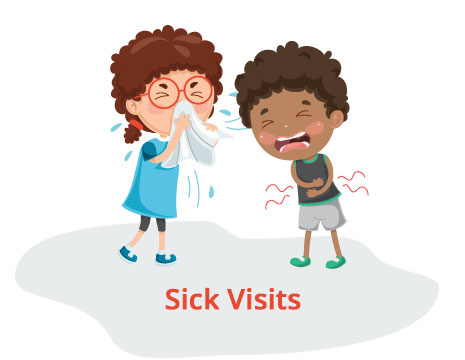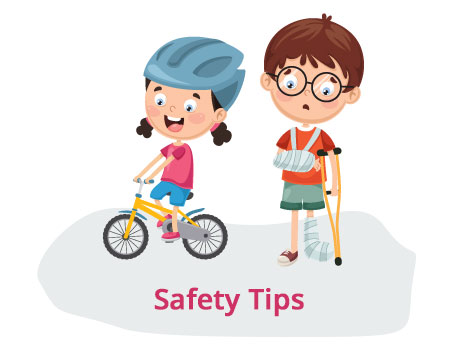Immunizations
Our Providers follow the American Academy of Pediatrics' immunization guidelines. We require all of our patients to be vaccinated unless we determine there is a medical contraindication.
DTaP (Diphtheria, Tetanus, and Pertussis)
This vaccine helps protect against Diphtheria, Tetanus (lockjaw), and Pertussis (whooping cough). With this injection, there are usually only mild side effects such as fever, some fussiness, and local soreness, redness, or swelling at the injection site. Acetaminophen may be given to help relieve these symptoms.
Hepatitis A
This vaccine helps to protect against the Hepatitis A virus, which can cause serious liver disease. Hepatitis A can also cause mild flu-like illness, jaundice (yellow skin and eyes), severe stomach pains, and diarrhea. The side effects of the vaccine include soreness at the injection site, headache and fatigue.
Varivax
This vaccine is given to immunize against the varicella virus, commonly known as chicken pox. Under Georgia State Law, Varivax is required prior to entering school. Both the American Academy of Pediatrics and the C.D.C. recognize Varivax as a safe and effective vaccine. Initially after the vaccine, there may be fever, local redness, swelling, and a rash. For a period of up to six weeks, there may be a chicken pox rash at the site or a small amount of lesions generalized over the body. There is also a chance for fever during this period of time. No salicylates (aspirin products) should be given after the vaccine for 6 weeks.
Meningococcal
This vaccine helps protect against bacterial meningitis, which is an infection of fluid surrounding the brain and spinal cord. There are usually only mild side effects such as fever, redness, or pain at the injection site.
Prevnar
The Prevnar vaccine protects against pneumococcal disease. Pneumococcal disease is the leading cause of bacterial meningitis, and can also cause blood infections and ear infections. After the vaccine, some children have local redness, tenderness or swelling where the shot was given. A low-grade fever may also be present.
Gardasil
Gardasil is a vaccine given to females and males between 9-26 years of age, and is designed to protect against the human papilloma virus (HPV). The vaccine was developed to prevent cervical cancer, pre-cancerous genital lesions, and genital warts due to HPV.
Hepatitis B
This helps protect against Hepatitis B which is a virus that can cause a severe liver infection. There are usually only mild side effects such as soreness at the injection site.
HIB (Haemophilus Influenzae B)
This helps protect against the bacteria H, Flu type B. This bacteria is a major cause of childhood pneumonia, meningitis, epiglotitis, and blood infections. This vaccine's side effects consist of low grade fever, redness, swelling, and warmth at the injection site. This usually occurs between 24-48 hrs. after the vaccination is given.
MMR (Measles, Mumps, and Rubella)
This vaccine protects against measles, mumps, and rubella. Soon after receiving this vaccine, some redness, soreness, or swelling at the injection site may occur. On some rare occasions, 1-2 weeks after receiving this vaccine, a rash and fever may be noticed. 1-3 weeks after getting the vaccine, some pain, soreness, or swelling in one or more joints, lasting up to three days, may occur.
IPV (Injectable Polio Vaccine)
This vaccine protects against polio. The side effects for this vaccine consist of a low-grade fever and mild soreness at the sight of the injection.
Rotateq
An oral vaccine given to infants between 6-12 weeks of age to help protect against rota virus (a virus that causes vomiting and diarrhea).















